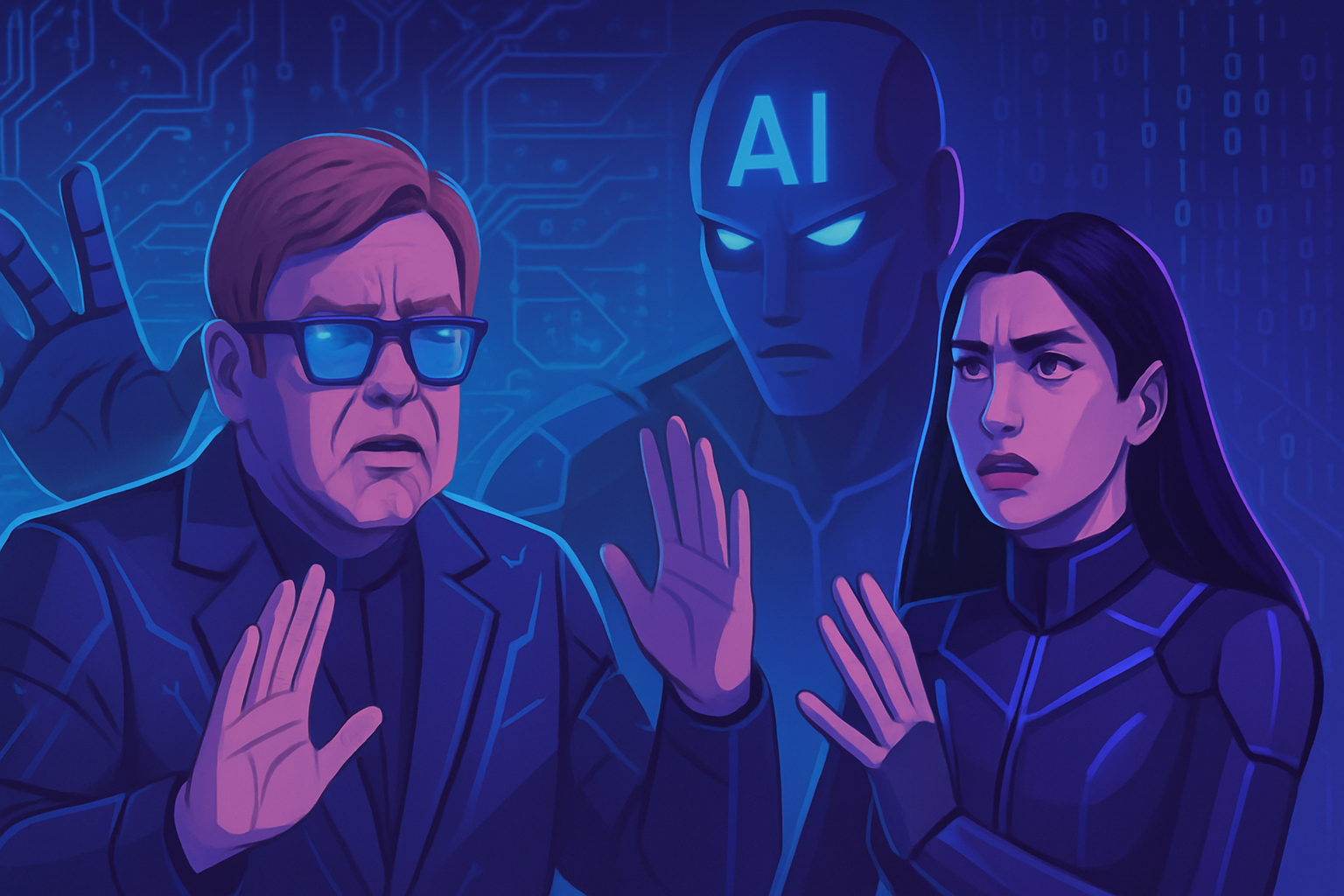Elton John and Dua Lipa unite their voices to demand a reform of copyright laws. These globally renowned artists are concerned about the inappropriate exploitation of their works by artificial intelligence technologies. About 400 British creators are standing up against the threat of an absence of protection, urging the government to act to preserve national creativity.
The absence of adequate regulations undermines not only their cultural heritage but also the position of the creative leader of the UK. The recent request highlights the urgency of establishing a paid legal framework for those shaping the artistic future while ensuring the viability of creative sectors in the face of tech giants.
Call for Protection of Artists
Renowned artists, including Dua Lipa, Sir Elton John, as well as Sir Ian McKellen and Florence Welch, have taken the initiative to defend creators’ rights against the emergence of artificial intelligence technologies. More than 400 musicians, writers, and British artists have signed a letter addressed to Sir Keir Starmer, demanding an update to copyright laws.
This initiative aims to protect their works from exploitation by technology companies that could, without adequate regulation, use their work to train AI models. The signatories argue that failing to establish this protection equates to handing their creations over to technology firms.
Consequences for the British Creative Industry
This letter also emphasizes the risk that the UK could lose its position as a creative country in the face of growing challenges, particularly regarding data regulation. Artists are asking policymakers to support an amendment to the Data (Use and Access) Bill, which would require developers to inform copyright holders when using their material for AI.
Arguments from the Signatories
The signatories, including the writer Kazuo Ishiguro and the playwright David Hare, argue that creators reflect and promote national narratives while being the innovators of tomorrow. Sir Paul McCartney, concerned about potential AI misuses, has also signed this letter.
Concerns Related to AI
Renowned artists like Annie Lennox and Damon Albarn have previously expressed their concerns. For instance, they released a silent album to protest the proposed changes to copyright laws. The debates surrounding the use of copyright-protected works in the development of generative AI systems continue to fuel tensions within the industry.
AI systems, capable of generating content from simple text instructions, raise significant concerns. Their increasing use is accompanied by critiques regarding copyright compliance and data management.
Reactions from the British Government
A government spokesperson indicated that authorities are seeking to ensure that creative industries and AI companies can thrive. In this regard, they are committed to consulting with various stakeholders to develop measures that would benefit both sectors. Nonetheless, the spokesperson clarified that any changes will only be considered if tangible assurances for creators are provided.
Debates on Proposed Amendments
Support for the amendment by Baroness Beeban Kidron is also emphasized. This amendment aims to establish a legal framework allowing AI developers and creators to create licensing regimes that support both technological innovation and the protection of creators’ rights.
Divergent voices, such as Julia Willemyns, co-founder of the think tank Centre for British Progress, argue that these proposals could hinder the UK’s growth and harm local innovation.
Future Perspectives
Discussions continue regarding the future of intellectual property in an increasingly digitized world. Stakeholders agree on the need for in-depth dialogue to balance the interests of artists and technology companies. The government plans to publish a report and an economic impact assessment regarding this issue, but the path toward effective regulation remains fraught with challenges.
Frequently Asked Questions on the Call for Protection Against Artificial Intelligence by Elton John and Dua Lipa
Why are Elton John and Dua Lipa advocating for better copyright protection against artificial intelligence?
They are concerned that artificial intelligence could use their work without fair compensation and want updated laws to protect their creations from exploitation by technology companies.
What are the main concerns raised by this call for protection?
Artists fear that their work will be used to train AI models without their consent, which could erode their status in the creative industry and harm creativity in the UK.
Which amendment do the artists want the government to support?
They are requesting an amendment to the Data (Use and Access) Bill that would require AI developers to be transparent with copyright holders about the use of their material when training AI models.
What consequences could arise from the lack of copyright protection against AI?
Without adequate protection, artists might lose control over their creations, leading to a decline in innovation and diversity in the arts, as well as decreased revenue for creators.
How does the creative community react to the inclusion of their works in generative AI systems?
There is increasing concern among artists regarding how their works are used and integrated into AI systems, leading them to engage in protest actions and scrutinize existing copyright laws.
What does the proposed amendment by Baroness Kidron aim to achieve?
The amendment proposes to allow AI developers to work with creators to establish licensing regimes, in order to ensure mutual respect between technology and artists’ rights.
Why do some experts claim that this approach could harm the British creative industry?
They argue that overly strict regulations could stifle innovation and lead to an exodus of AI to countries with more flexible laws, which would negatively impact economic growth and industry development in the UK.
What alternative solutions could be considered to balance artists’ rights and AI development?
Discussions on new and flexible licensing models between creators and technology companies could allow for both the protection of copyright and the transparent and responsible development of AI technologies.






